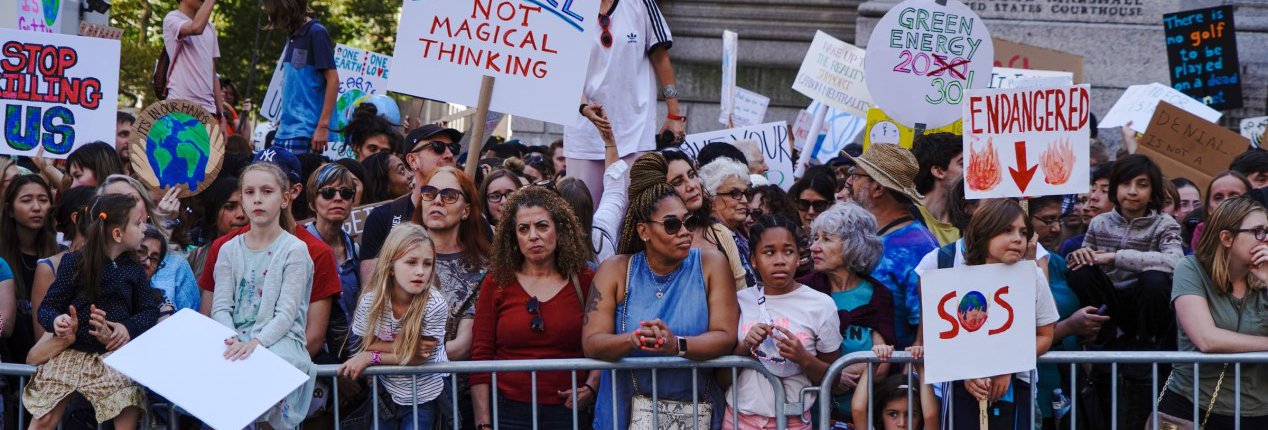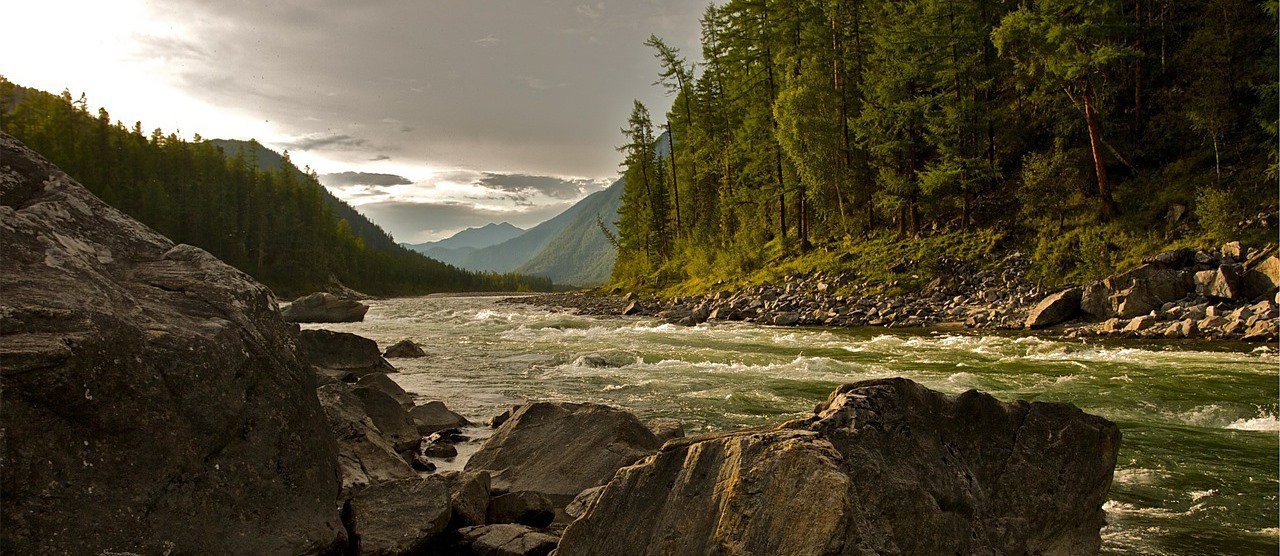|
Public policy forms our social infrastructure. The policy choices we make today will move us closer to true justice — or exacerbate persistent inequities. We promote policies that support long-term well-being for people and the planet. We are working to create a fair and just economy; a regenerative agricultural system; and a healthy environment. |
Jump to: |

A Just, Clean Energy Transition
America needs an energy revolution that’s clean, equitable, and just. For too long, we’ve burned fossil fuels to feed our hunger for energy, driving climate change and harming disenfranchised communities in the process. Toxic pollution from drilling, mining, and refining also disproportionately burdens communities of color and low-wealth families. We’re developing cutting-edge policies to hasten a just transition to a clean energy economy that works for people and the planet.
Top Recommendations
- Congress should establish a federal clean energy standard and expand federal authority over electric transmission lines to increase access to renewable resources like wind and solar energy.
- Congress and the Biden administration should accelerate the transition to electric vehicles by revoking the Trump administration’s efforts to weaken emissions standards and by setting higher fuel efficiency and electric car requirements.
- Congress and the Biden administration should ensure that federal agencies avoid or remedy harms to our public lands, phase out development of fossil fuels, and enhance climate resiliency.
- Congress should enact legislation that would provide communities that rely on fossil fuels with new and improved economic opportunities. Congress and the Biden administration should also provide low-wealth communities with access to energy efficient technologies and renewable energy resources.
Resources
- Paper: Climate, Energy, Justice: Electricity Policy
- Paper: Climate, Energy, Justice: Transportation Policy
- Paper: Climate, Energy, Justice: Public Lands Policy
- Paper: Climate, Energy, Justice: Climate Justice
- Podcast episode: Energy Policy and Public Lands
- Podcast episode: Working Toward a Just Energy Transition
- Podcast episode: Fight the Powers That Be
- Podcast episode: Capturing the Enemy
- Podcast episode: Banking on the Planet
- Podcast episode: That’s an Order
- Op-ed: How To Create Anti-Racist Energy Policies
- Op-ed: Biden Can Leverage Larger Trends to Make Climate Progress
- Op-ed: From Rhetoric to Reality: Achieving Climate Justice
- Op-ed: Localizing the Green Energy Revolution
- Op-ed: Biden Must Defend His Climate Policies from Industry Attack
- CPRBlog post: Jennifer Granholm and the Energy Department Can Usher in a Just Transition to Clean Energy. Here’s How.
- CPRBlog post: Biden Named Richard Glick as Chair of the Federal Energy Regulatory Commission. What’s Next for The Agency?
- CPRBlog post: Fossil Fuels and Public Lands: The Benefits of a Biden Lease Moratorium
- CPRBlog post: On Rosa Parks’ Birthday, A Look at Transit Equity
- CPRBlog/Lawfare post: Lessons from the Texas Grid Disaster: Planning and Investing for a Different Future
- CPRBlog post: Declaring Our Independence from Fossil Fuels
- CPRBlog post: Following the Most Recent UN Climate Change Report, Here Are Some Policies to Move Us Forward

Toxic Floodwaters
Extreme rainstorms and wetter hurricanes are consequences of climate change. They cause flooding and high winds, which can damage industrial facilities such as chemical plants and oil refineries. These facilities often unleash dangerous chemicals into floodwaters, which are swept into homes, businesses, and schools — all too often in disenfranchised communities. We’ve mapped hazards in Virginia and are applying lessons learned to other states. We’ve also developed recommendations that policymakers can use to better protect communities from toxic chemicals and climate change.
Top Recommendations
- Agencies should use existing legal authority to prevent climate-driven chemical disasters through permitting, enforcement, and other tools.
- Policymakers should conduct additional studies of toxic flooding hazards and develop stronger protections, particularly for disenfranchised communities that are disproportionately impacted by climate change and toxic floodwaters.
- Lawmakers should fill gaps in safeguards, including passing standards for currently unregulated hazardous chemical storage tanks.
Resources
- Report: Toxic Floodwaters: The Threat of Climate-Driven Chemical Disaster in the James River Watershed
- Paper: Toxic Floodwaters: Public Health Risks and Vulnerability to Chemical Spills Triggered by Extreme Weather
- Policy Brief: Preventing “Double Disasters”
- Op-ed: A Call to Action on the Risk of Toxic Floodwaters in Virginia
- Op-ed: Trump Rollback of Two Safeguards Increases Threat of Chemical Disaster in Virginia
- Podcast episode: Preparing for Climate Change and Toxic Floods in the Chesapeake Bay Watershed
- Webinar: Toxic Floodwaters and Community Water Resources
- Webinar: Toxic Floodwaters and Environmental Justice
- Webinar: Toxic Floodwaters and Innovative Strategies to Prevent Climate-Driven Pollution and Chemical Disasters
- CPRBlog post compilation: Toxic floodwaters

Public Protections and Social Justice
Agencies develop our nation’s health, safety, and environmental protections to safeguard us from a variety of hazards. But too often, regulations shortchange or ignore disenfranchised communities. The result: The burdens of toxic pollution, climate change, and workplace hazards fall most heavily on low-wealth families and communities of color. We’re working to move agencies in a better direction, encouraging substantive improvements in regulations. The goal: Public protections that work for all people and the environment and that advance justice and equity.
Top Recommendation
Rebuild and reform the federal regulatory process to address four factors contributing to watered-down protections and the lack of attention to justice and equity:
(1) Weak and outdated laws
(2) Unnecessary barriers to just, equitable implementation of health, safety, consumer protection, and environmental laws
(3) Undue corporate influence
(4) Obstacles to meaningful public participation, especially by historically disenfranchised communities
Resources
- Report: A Crowdsourced Blueprint for Building a Progressive Regulatory System
- Webinar: Achieving Social Justice Through Better Regulation
- Library: Regulation as Social Justice
- Op-ed: When the System Fosters Racial Injustice
- CPRBlog post: Will the Biden Administration Invest in Environmental Justice Reforms?
- CPRBlog post: Advocates, Scholars of Color Call for Bold Action to End Environmental Racism
- CPRBlog post: The Promise of Environmental Justice Screening Tools in Maryland and Beyond
- CPRBlog post: Getting the Lead Out
- CPRBlog post: Georgia’s Activists of Color Offer Hope for Meaningful Action on Climate Justice
- CPRBlog post: Environmental Justice and the COVID-19 Pandemic: Why the EPA Needs a Funding Boost

Climate Migration and Relocation
As climate change accelerates, many communities will become uninhabitable. Whether due to sea level rise, increased flooding, extreme drought, or thawing permafrost, entire towns in the United States and beyond are already being forced to relocate. We’re working to provide policy recommendations to ensure that families can migrate safely, and community relocations are conducted in a just, inclusive, and effective fashion.
Top Recommendations
- Researchers should investigate communities most impacted by climate migration, particularly those that are burdened by other environmental and social stressors.
- Researchers should investigate communities most impacted by climate migration, particularly those that are burdened by other environmental and social stressors.
- Agencies and officials responsible for planning community relocations need to give everyone a seat at the table, including affected residents and small businesses.
Resources
- Report: Reaching Higher Ground: Avenues to Secure and Manage New Land for Communities Displaced by Climate Change
- Paper: From Surviving to Thriving: Relocation and Migration
- Podcast episode: The Age of Climate Migration
- Podcast episode: Nowhere to Run
- CPRBlog post: Reaching Higher Ground in the Face of Climate Change
- CPRBlog post: A New Strategy for Indigenous Climate Refugees

Protecting Our Public Lands
Donald Trump and his appointees systematically dismantled protections for our public lands. Secretaries Ryan Zinke and David Bernhardt did everything in their power to make the U.S. Department of the Interior and its bureaus as industry friendly as possible. They shrank national monuments, gutted endangered species protections, and threw open the doors to fossil fuel extraction. With a new administration, we have the opportunity to chart a better, sustainable course for our national parks, monuments, and wildlife refuges. These reforms will help ensure that our public lands are conserved and used in ways that benefit us all.
Top Recommendations
- The Department of the Interior should restart climate adaptation planning to protect wild and scenic places, historic landmarks, and threatened and endangered species from sea-level rise, flooding, wildfires, and other climate impacts.
- The Biden-Harris administration should curtail leases that permit offshore drilling for oil and gas in all coastal states.
- Interior should restore Arctic National Wildlife Refuge protections and explore rescinding Trump-approved oil and gas leases there.
Resources
- Paper: The Trump Public Lands Revolution: Redefining ‘The Public’ in Public Land Law
- Op-ed: Trump’s Policies Blasting at the Foundations of Conservation in Public Land Law
- Op-ed: Blind Focus on ‘Energy Dominance’ May Cripple Endangered Species Act
- Op-ed: Turning Power Over to States Won’t Improve Protection for Endangered Species
- Op-ed: A Defeat on Offshore Drilling Extends the Trump Administration’s Losing Streak in Court
- Op-ed: Equity and Justice Should Begin at Home
- CPRBlog post: Trump’s Environmental Steamroller Bears Down on National Monuments
- CPRBlog post: Senate Briefing Highlights Need for Strong Federal Role in Protecting Endangered Species
- CPRBlog post: Biden Nominated Deb Haaland to Lead the Department of the Interior. Here are Five Top Priorities for the Agency.
- CPRBlog post: Fossil Fuels and Public Lands: The Benefits of a Biden Lease Moratorium
- CPRBlog post: Biden Picks Conservation Advocate Tracy Stone-Manning to Lead the Bureau of Land Management. Here Are Five Priorities for Our Public Lands.

It’s Our Time. Let’s Get to Work.
CPR is working to enfranchise those who have been shut out of our democracy, particularly people and communities in the crosshairs of climate change and toxic pollution, who are routinely denied economic opportunity, and whose workplaces are unsafe or unhealthy. We’ve spent the last four years preparing for this opportunity, crafting the policy solutions that will protect our health and safety and make our government work for us. Now it’s time to turn those ideas into reality. Please support this important work with your secure donation today.
